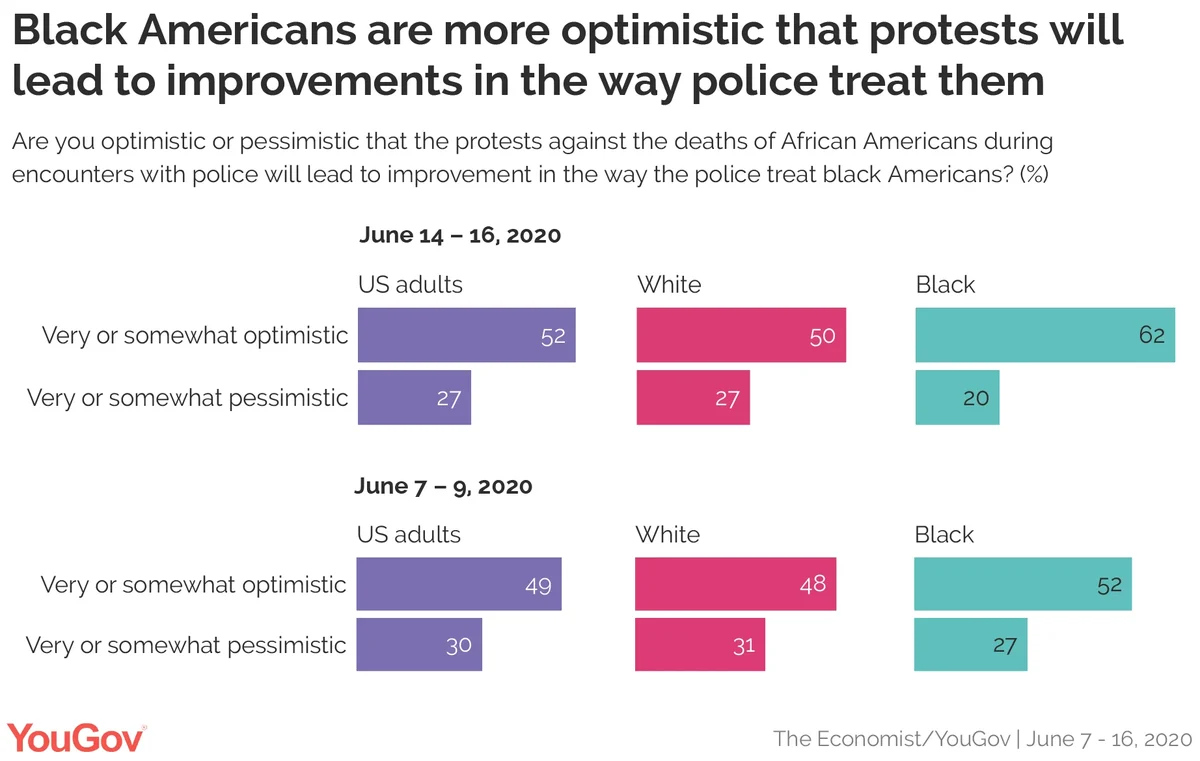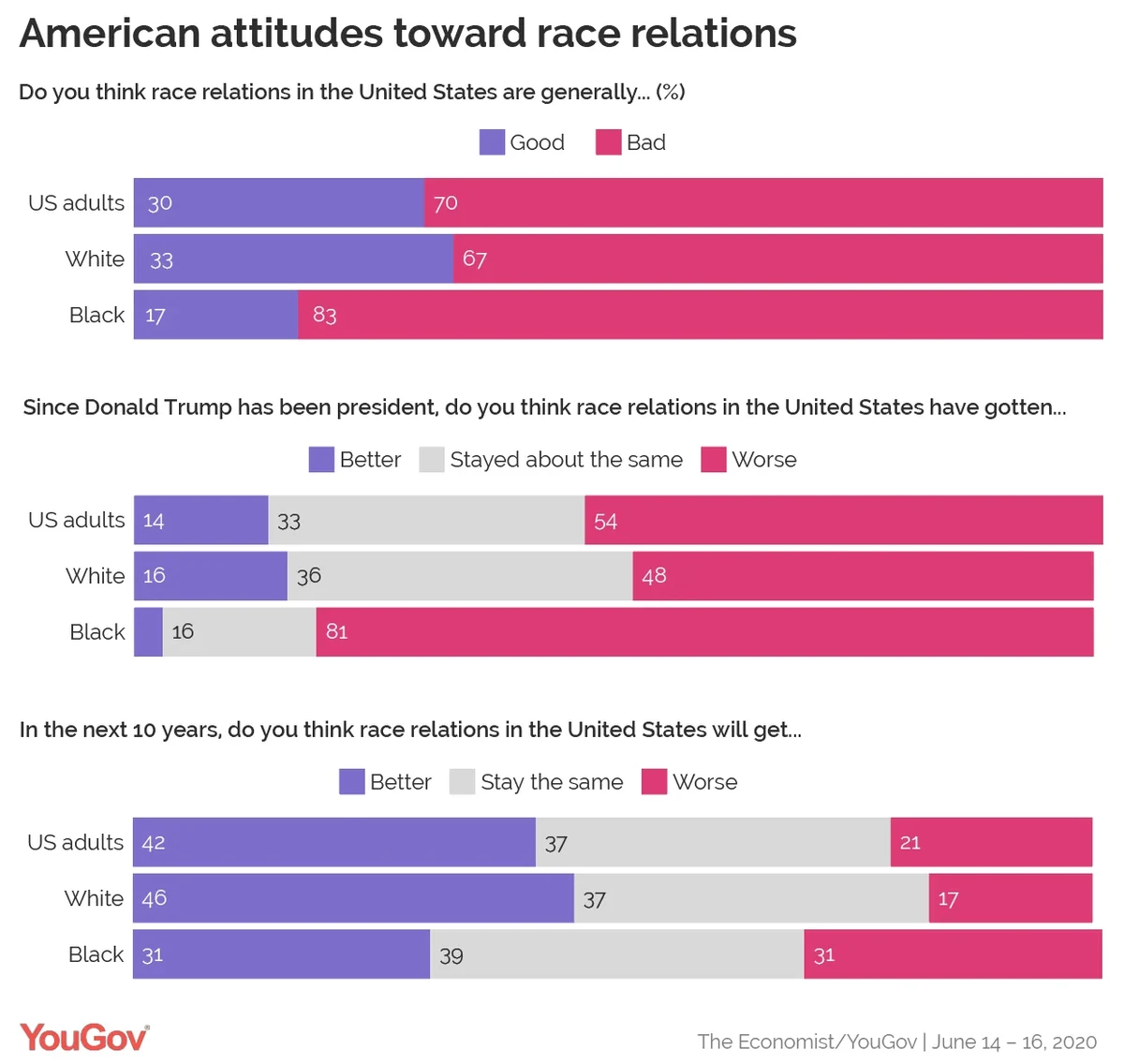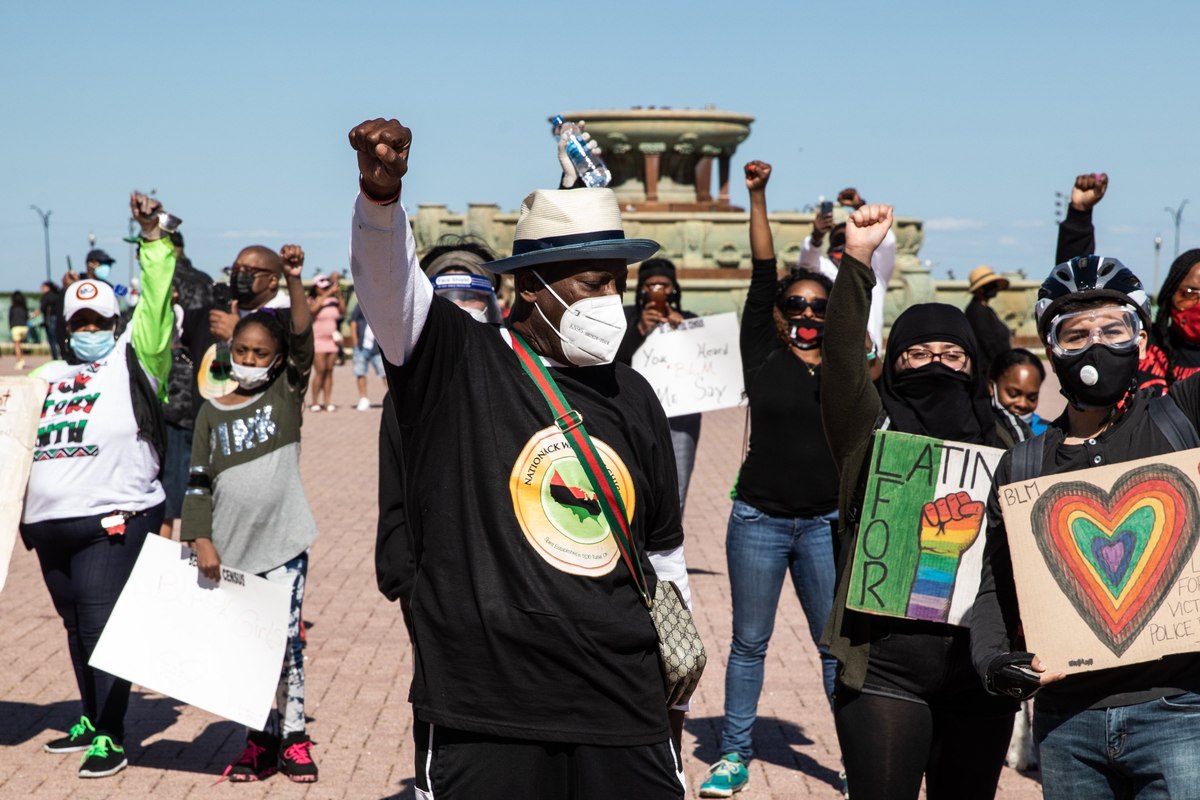Americans seem to be recognizing that a pattern in police actions toward Black Americans, and some cities and states have responded by banning chokeholds, firing officers involved in fatal incidents, and promising diversity as part of police reform. To some, the response to protests following the death of George Floyd at the hands of Minneapolis police officers looks like progress for improving race relations.
The latest Economist/YouGov Poll suggests that while Black Americans have become more optimistic about the impact of the protests on police behavior in the last week —when many of those actions were taken, white Americans have become more pessimistic.
But Black Americans are not at all sure that there will be improved race relations in the longer term.
Pessimism about likely changes in police behavior after the protests among whites has risen 11 points in the last week, with almost no change in the proportion that is optimistic. Black optimism, however, has gone up nine points, and their pessimism has declined eight points. Americans overwhelmingly recognize the problems with policing in the United States and approve of non-violent protests (most think the protestors are peaceful).

But there is doubt that long-term problems with race relations in general are being solved. Both white (67%) and Black Americans (83%) see the state of current race relations in America as bad and as having gotten worse in Donald Trump’s presidency. While white Americans are more likely to believe race relations will improve in the next 10 years, just as many Black Americans are pessimistic as are optimistic about what is to come.
Reponses by both the government and businesses to the protests leave much to be desired, according to many. Over half (53%) of Americans disapprove of the president’s handling of the protests, while 34 percent approve. As for businesses, the public is skeptical. Nearly two-thirds call their statements in support as pandering, and not genuine. Black Americans are a little more positive about this, but half of them agree the statements pander more than they are genuine.
{{ raw_content }}
Americans experience the protests from multiple points of view. More than a third (white and Black Americans) have a close friend or family member who is a police officer, including nearly half of Republicans. Just over a third have a close friend or family member who has participated in a protest. Only one in 10 have a friend or family member who has been arrested or injured in a protest. There is some overlap in these two groups, but most of those with a relationship to a police officer don’t have a relationship with someone who has protested.
The creation of the “All Lives Matter” slogan is seen as countering “Black Lives Matter” by many. Just about half the public have a positive reaction to each slogan, but many see them in opposition. About three-quarters of those with a negative response to one slogan have a positive response to the other.

See the full toplines and tables results from this week's Economist/YouGov poll
Methodology: The Economist survey was conducted by YouGov using a nationally representative sample of 1,500 U.S. adult citizens interviewed online between June 14 - 16, 2020. This sample was weighted according to gender, age, race, and education based on the American Community Survey, conducted by the US Bureau of the Census, as well as 2016 Presidential vote, registration status, geographic region, and news interest. Respondents were selected from YouGov’s opt-in panel to be representative of all US citizens. The margin of error is approximately 3.2% for the overall sample.
Image: Getty








